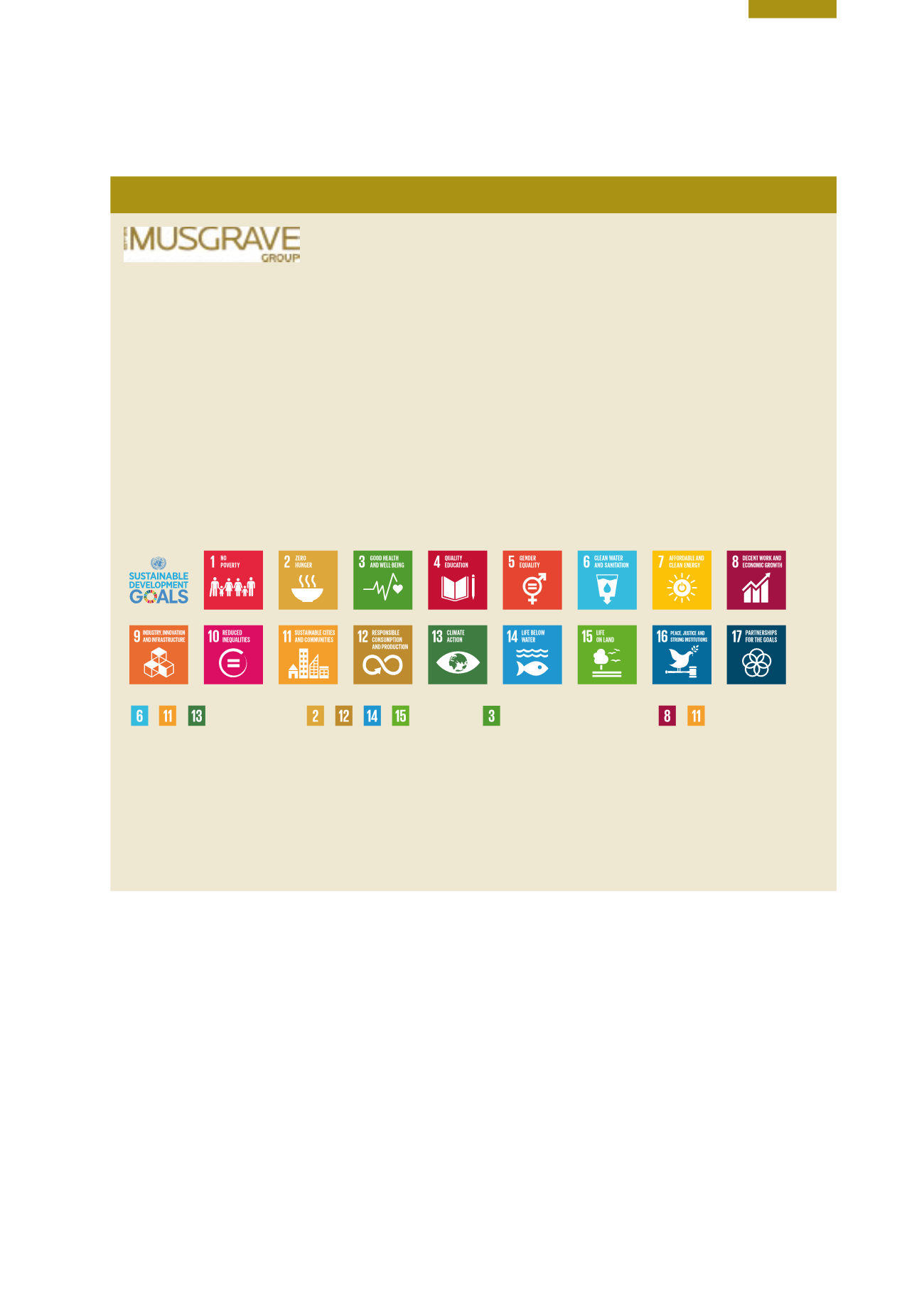

157
Chapter 9: Environment and the Economy
Many economic sectors have strategies in place for
growth or change. Implementation of these strategies
can come with potential environmental risks and
challenges. It is now recognised that it is necessary to
ensure that growth strategies are sustainable in the long
term. Strategies should include a commitment to report
publicly and regularly on their environmental performance
against relevant environmental indicators. This will make
the strategies more robust and provide for increased
environmental accountability and transparency during
implementation. A strategy review mechanism should
kick in if the performance monitoring demonstrates an
unfavourable situation for Ireland’s sustainability and
its legal obligations to meet environmental targets.
The implementation plan established for tracking the
performance of Food Wise 2025 is an example of good
practice in this area.
Strategies to Deliver More Efficient
Businesses
Waste prevention projects have demonstrated what is
achievable.
Since its inception in 2004, Ireland’s National Waste
Prevention Programme has successfully delivered solutions
for individuals and organisations that recognise the
economic and reputational costs of wasteful consumption
(both excess purchasing and final disposal charges). The
programme, which is overseen by the EPA, has evolved
beyond an initial focus on preventing generation of solid
wastes to a broader view of preventing wastage across
materials, energy and water; this is primarily because of
the integrated nature of relationships between them.
The latest strategy ‘Towards a Resource Efficient Ireland’
(EPA, 2014a) with its vision of living better, using less,
Figure 9.8
Musgrave Group Sustainability Commitment
What does sustainability
mean to us?
“Our long term approach to relationships and business
means that we place great emphasis on the core
responsibilities that any good business should have:
to look after its people and customers, to minimise its
environmental impact and to produce sustainable wealth
for the benefit of all stakeholders in the long term – not
just for short term financial gain.”
Musgrave focuses on embedding sustainability in its
operations and brands, concentrating on 9 of 17 UN
Sustainable Development Goals that are relevant to the
retail sector.
These fall into four broad categories:
n
minimising environmental and climate change
impacts;
n
driving sustainable sourcing and consumption;
n
leading in health and wellbeing;
n
taking an active leadership role in the community.
Minimising environmental
& climate change impacts
• Carbon managment
• Packaging & waste
• Food waste
• Water conservation
Driving sustainable
sourcing and consumption
• Ethical sourcing
• Human rights
• Sustainable consumption
• Animal welfare &
biodiversity
Leading in health
& wellbeing
• Nutrition & healthy eating
• Education & awareness
• Active living
Taking an active leadership
role in the community
• Being a good neighbour
• Vibrant communities
• Employment &
opportunities
Aligning our sustainability strategy with the UN’s Sustainable Development Goals


















